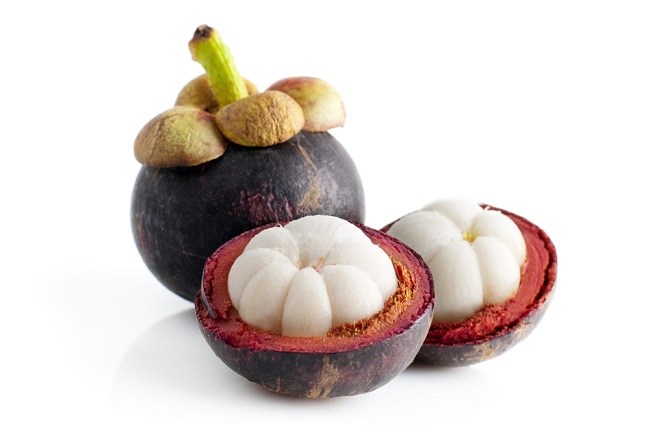Deworming medicine is useful for preventing and treating intestinal worms which sometimes the sufferer does not realize. But, do you already know how to take the right deworming medicine?
Worm disease can be caused by various species of worms. The types of worms that most often infect humans include roundworms (Ascaris lumbricoides), whipworm (Trichuris trichiura), and hookworms (Necator americanus and Ancylostoma duodenale).

In the body of the host, in this case is humans, worms take nutrients from the food that enters and from the tissues of the host's body, including blood. That is why, intestinal worms can cause blood loss which over time becomes anemia.
Intake of various important nutrients, such as protein, carbohydrates, and vitamin A, will also decrease, so sufferers can experience nutritional deficiencies (malnutrition). This causes the body of people with worms to become thin and easily tired. If it occurs in children, lack of nutrition due to intestinal worms will interfere with their growth and development process.
Apart from causing anemia and malnutrition, certain types of worms can also cause diarrhea and dysentery.
Various Deworming Medicines and How to Consume Them
One way to treat and prevent intestinal worms is to take worm medicine. The following are some types of worm medicine available in Indonesia and how to consume them:
1. Piperazine
Piperazine is effective in treating pinworm infections (Enterobius vermicularis) and hookworms. Piperazine works by immobilizing the worms, so the worms can be carried out with the feces. Piperazine can be taken before meals (on an empty stomach), or after meals.
Piperazine is not recommended to be taken with pyrantel pamoate, chlorpromazine, tramadol, bupropion, and laxatives containing sodium bisphosphate. Before taking this deworming medicine, consult your doctor first if you have a history of epilepsy or liver disease.
2. Pamoat pyrantel
Pyrantel pamoate is effective against roundworm infections (ascariasis), pinworms, and hookworms, but is not effective against whipworms. Pyrantel pamoat paralyzes the worms so that they can be carried out with the feces. Pyrantel pamoate can be taken on an empty stomach or after a meal. If it is in the form of a chewable tablet, the medicine must be chewed before swallowing. Pyrantel pamoate should not be taken at the same time as piperazine.
3. Levamisole
Levamisole is effective against roundworm infections, but is not effective against whipworms and hookworms. Like piperazine and pyrantel pamoate, levamisole works by immobilizing intestinal worms. Levamisole should be taken with water while eating, to minimize the side effects of nausea and abdominal pain.
Avoid taking this drug with alcoholic beverages. Consult your doctor first if you have a bleeding disorder, rheumatoid arthritis, or severe renal failure.
Levamisole should not be taken at the same time as phenytoin, albendazole, warfarin, and clozapine, or if you have recently been immunized.
4. Mebendazole
Mebendazole is effective against pinworms, whipworms, roundworms, and hookworms, including their eggs. The way mebendazole works is to inhibit the absorption of nutrients in the worms, so the worms will die of starvation.
Mebendazole can be taken on an empty stomach, but should be taken with food, especially foods high in fat, such as milk or ice cream. Mebendazole can also be crushed and mixed with food.
Mebendazole should not be taken at the same time as metronidazole, phenytoin, carbamazepine, and cimetidine.
5. Albendazole
Albendazole is effective against tapeworms in swine (Taenia solium), roundworms, hookworms, whipworms, and pinworms, including eggs. The way albendazole works is the same as mebendazole, which inhibits the absorption of nutrients in the worms, so that the worms die of starvation.
This medication should be taken with meals, especially when eating high-fat foods, for better absorption of the drug.
Albendazole should not be taken at the same time as dexamethasone, praziquantel, cimetidine, clozapine, seizure medications (phenobarbital, phenytoin, carbamazepine), diltiazem, antiretroviral drugs, malaria drugs, ganciclovir, and itraconazole.
6. Praziquantel
Praziquantel is effective against liver flukes (Fasciola hepatica) and schistosomal worms. This drug works by immobilizing the worms and releasing the sucking worms. This medicine should be taken with food and swallowed whole, not chewed or crushed, because it tastes bitter. If the child cannot swallow the tablets, the medicine can be crushed and mixed with soft foods or drinks. But remember, the drug must be taken within an hour of being mixed.
Praziquantel should not be taken at the same time as TB drugs rifampicin, dexamethasone, seizure drugs (phenobarbital, phenytoin, carbamazepine), cimetidine, erythromycin, antifungal drugs (itraconazole, ketoconazole, griseofulvin), ARV drugs (nevirapine, efavirenz) and the malaria drug chloroquine.
The World Health Organization (WHO) recommends the drug albendazole 400 mg or mebendazole 500 mg, taken once every 1 or 2 years, to prevent intestinal worms.
Some types of deworming for adults or children, such as piperazine, pyrantel pamoate, and mebendazole, are sold over the counter (blue label). If you buy your own medicine without a doctor's prescription, carefully read the instructions for use listed on the package. Drugs in the form of syrup should be shaken before consumption.
The use of deworming drugs in children less than 2 years old, pregnant women, and breastfeeding mothers, should be consulted with a doctor first.
In addition to taking worm medicine, prevention of worms also needs to be done by maintaining cleanliness, such as using clean water sources, wearing footwear when outside the house, and regularly washing hands before eating and after defecating.
Written by:
dr. Michael Kevin Robby Setyana









